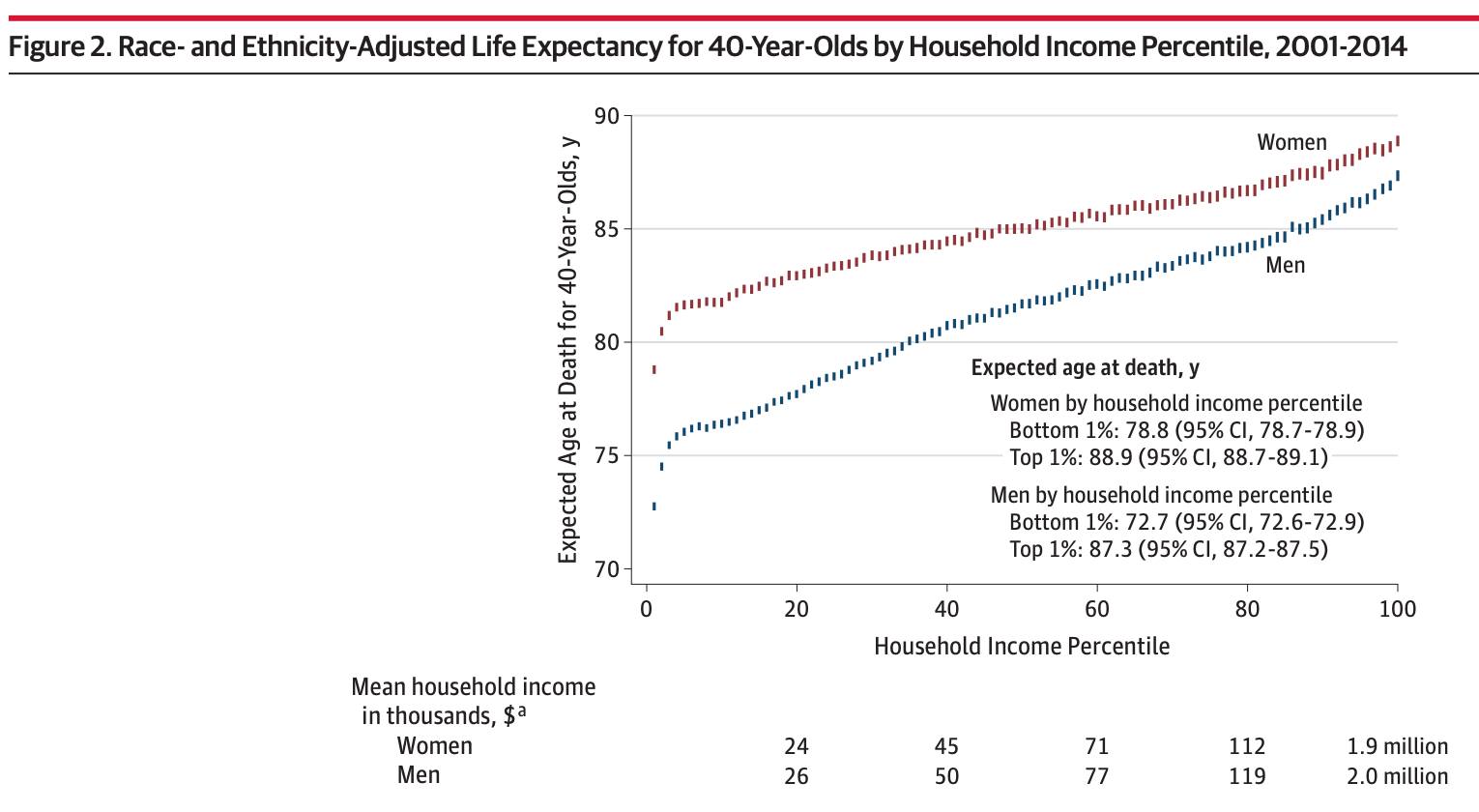
Apparently the difference in life expectancy that you get from having nearly unlimited wealth for personal expenditures ($1.95+ million a year) vs having a good tech job ($224k/year) vs is only about 0.8 years. Also, the life expectancy for the top 5% of income earners ($224k+) only went up by 3 years from 2001 to 2014.
This implies some combination of the following might be true:
- No amount of heroic (and heroically-expensive) medical care can give a serious boost to life expectancy.
- We're not going to cure aging anytime soon. Medical technology is not advancing rapidly enough to have a serious impact on life expectancy over the next few decades, even if you have access to the best tech money can buy. Given that historical trends in adult life expectancy since the late 1800s are roughly linear (about 0.2 years in increased life expectancy once adulthood is reached per year of advancement in medical science), we shouldn't expect rapid breakthroughs in ending aging. As much as I'd like to believe that advances in AI-driven research, biotech, nanotech etc will have exponential impact over time, the data doesn't really support this yet.
- Given high incomes, things like a rich tapestry of loving social connections, not smoking, personal habits, diet, exercise etc probably have a higher impact on life expectancy than getting the best possible medical care.
This study highlights plenty of broader social problems to address as well; there's a steady correlation between income and life expectancy, life expectancy is trending flat to slightly down for the poorest Americans, and going from poor to destitute (like 5th percentile to 1st) *dramatically* cuts your life expectancy.
The study can be looked up on sci-hub at doi:10.1001/jama.2016.4226
This post was originally published on Facebook
